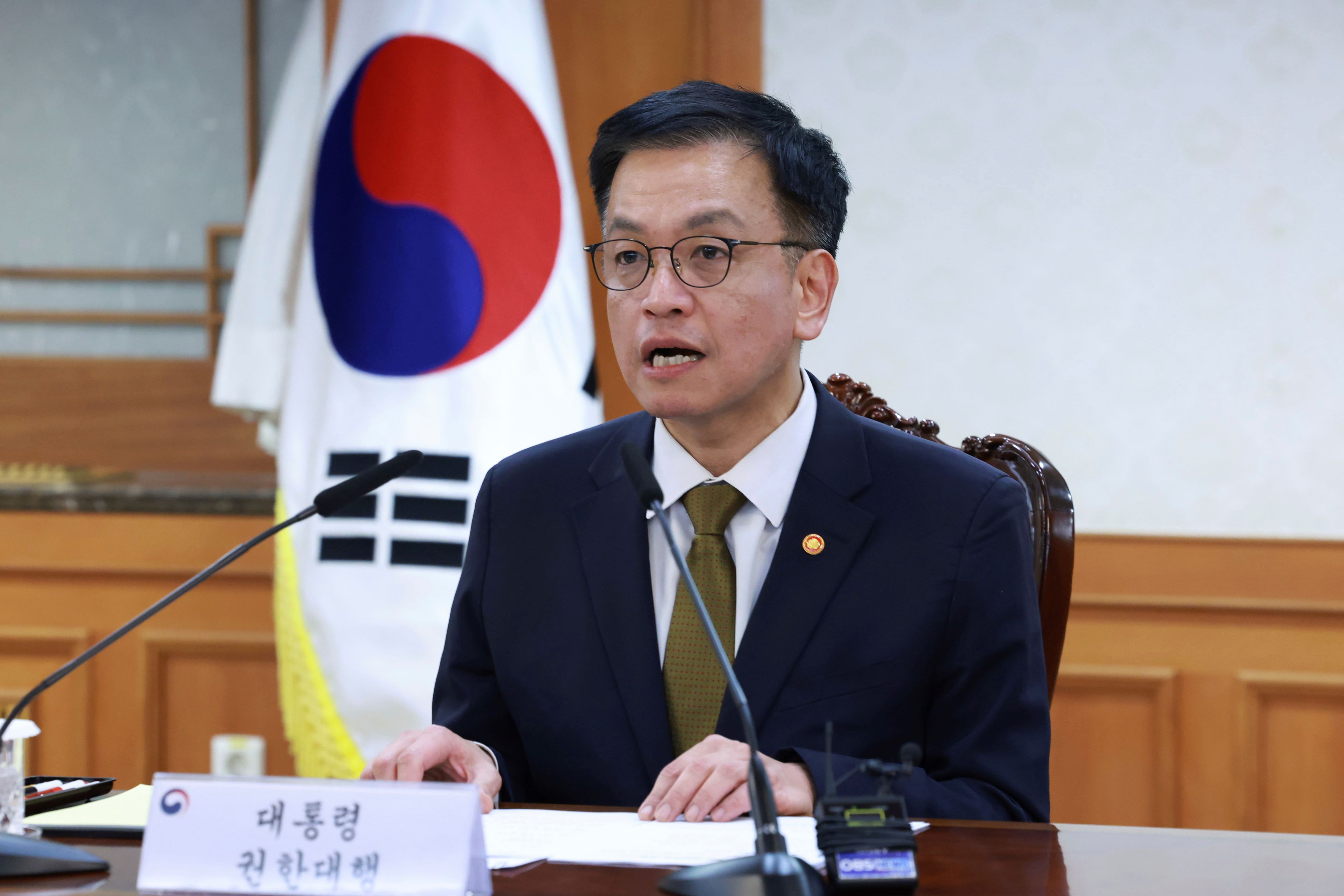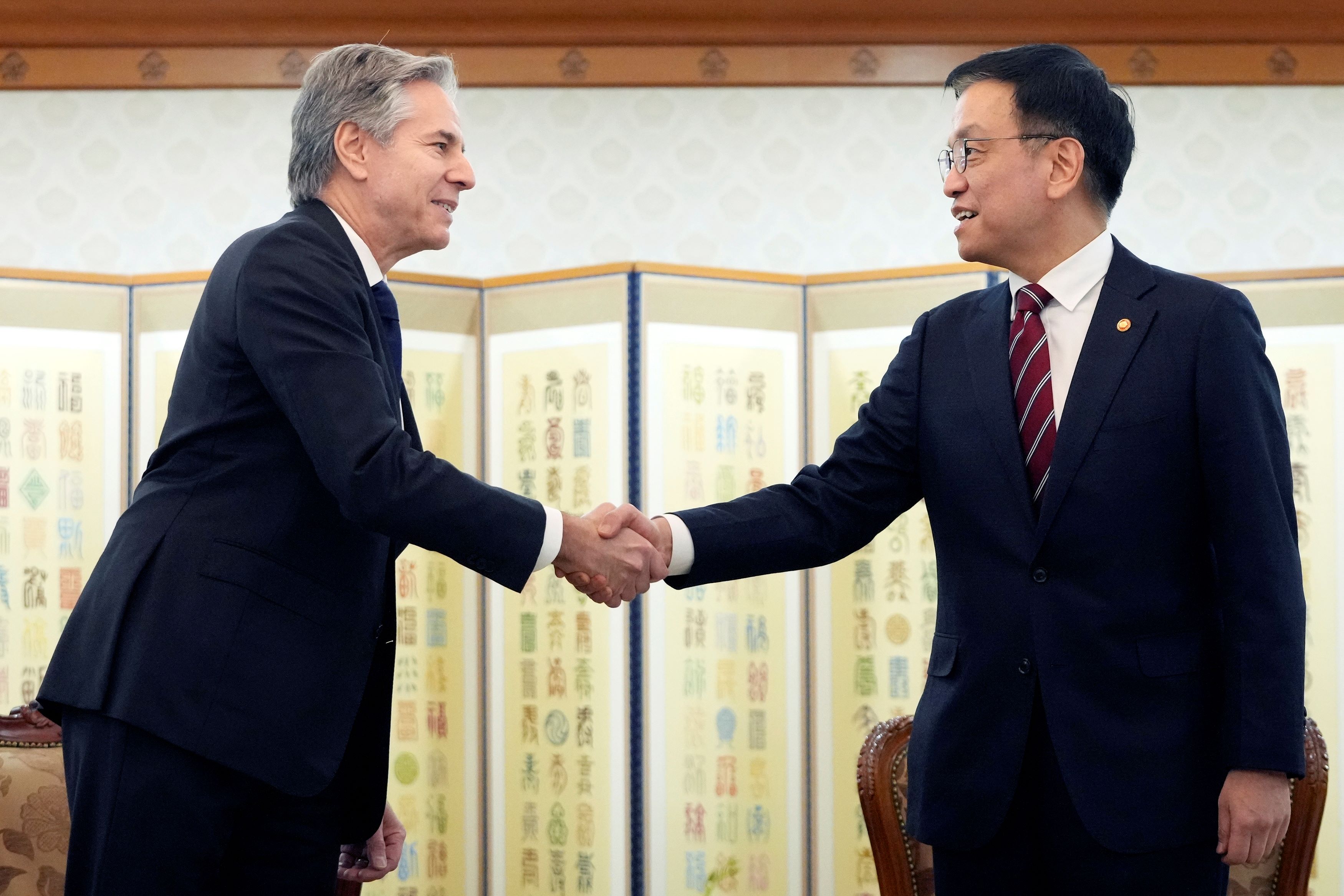
SEOUL - Two weeks after becoming South Korea's second acting president, Choi Sang-mok faces not only the task of steering a shaky economy and rebuilding confidence among global allies but simply staying in his job amid the worst political crisis in decades.
Choi, who only gained his first ministerial appointment two years ago, has been thrust into a political cauldron that has already consumed one of the country's most experienced leaders, but he has so far navigated the crisis better, say analysts.
"Choi is on a tightrope walk, basically in a balancing act between the two parties," said Kim Jin-wook, a Citigroup economist, referring to the main opposition Democratic Party and the ruling People's Power Party.
READ MORE: Yoon’s security chief says 'bloodshed' must be avoided over president arrest
Choi has sparked anger from swathes of the public and the opposition over what they see as him impeding efforts to arrest impeached President Yoon Suk-yeol, who has defied repeated summons in a separate criminal investigation into allegations he masterminded insurrection with his Dec 3 martial law bid.
Still, Choi, 61, a veteran economic technocrat, has already outlasted his predecessor Prime Minister Han Duck-soo.
Han, who first took over from Yoon, was impeached by parliament after 13 days as acting president for not approving justices to the Constitutional Court.
Kim played down the prospect of Choi being impeached given the opposition is even less favorable to others in the cabinet.
However, the Democratic Party, which has the numbers in parliament to impeach Choi if it chooses, on Tuesday filed a criminal complaint with police against him for not ordering presidential guards to make way for authorities to arrest Yoon on their failed first attempt a week ago.
ALSO READ: South Korea extends shutdown of Muan airport due to crash probe
A six-hour standoff with armed presidential guards last Friday raised concerns South Korea's political crisis could become bloody.
Choi needs to ensure legal proceedings play out peacefully to prevent damaging confidence in Asia's fourth-largest economy, which has seen the won currency at its weakest in 15 years and the government cut its 2025 economic growth forecast to 1.8 percent from 2.2 percent.
Deft touch
It has been an almost unimaginable change in status for Choi in just a fortnight. Choi became finance minister two years ago and now finds himself not only trying to stabilize the economy, but acting president and acting prime minister.
And assuming he can avoid the fate of Han and Yoon, he could be in the acting role for up to six months.
READ MORE: Yoon to accept court decision even if it ends presidency, lawyer says
The Constitutional Court must decide within 180 days whether to permanently remove Yoon from office or reject the impeachment. If it removes Yoon or he resigns, a presidential election must be held within 60 days.
In one of his first moves, Choi on Dec 31 appointed Constitutional Court justices to fill two out of three vacancies. At the time it was unclear whether the court could rule on Yoon's future without a full nine-judge bench.

Unfortunately, that decision ended up not fully satisfying either side of the political divide, with the opposition wanting three new appointments and Yoon's ruling party none.
But colleagues who have worked with Choi said it showed he had a more deft touch than Han who gave no ground to the opposition.
ALSO READ: South Korean transport minister plans to resign over country's worst air crash
"His decision to appoint the judges helped him to avoid Han's fate at a time when compromise is called for," a senior government official said, asking not to be named due to sensitivity of the issue. The official also noted how Choi was more acceptable to the opposition because he was one of few cabinet members to openly oppose Yoon's martial law plan.
A Gallup Korea poll released on Friday showed that 31 percent of 1,004 respondents felt Choi was doing a good job, while 56 percent disapproved of his performance.
On the diplomatic front, Choi has also been thrust into the role of trying to reassure allies such as the United States.
US Secretary of State Anthony Blinken praised Seoul's response to the political crisis and reaffirmed Washington's ties with Seoul during a visit to Seoul on Jan 6.
United Nations chief Antonio Guterres expressed "full confidence" in South Korea's democratic institutions in a Friday phone call with Choi, the finance ministry said.
READ MORE: S. Korean Army chief, special warfare commander indicted in martial law probe
Still, some see Choi having difficulty with the new administration of US President-elect Donald Trump.
"I don't see him building a good rapport with the new Trump administration. Trump won't do that with an interim leader having seen two impeached in Korea," said Shin Yul, a political science professor at Seoul's Myongji University.
South Korean authorities worry Trump may usher in an unpredictable era when he takes office on Jan 20 that could include strong-arming Seoul to pay more for its defense and imposing high tariffs on countries enjoying trade surpluses.
Asked about relations with the Trump administration, Choi's spokesperson said in a text message: "the government will closely work with relevant ministries including the foreign ministry to cooperate with allies including the US".


